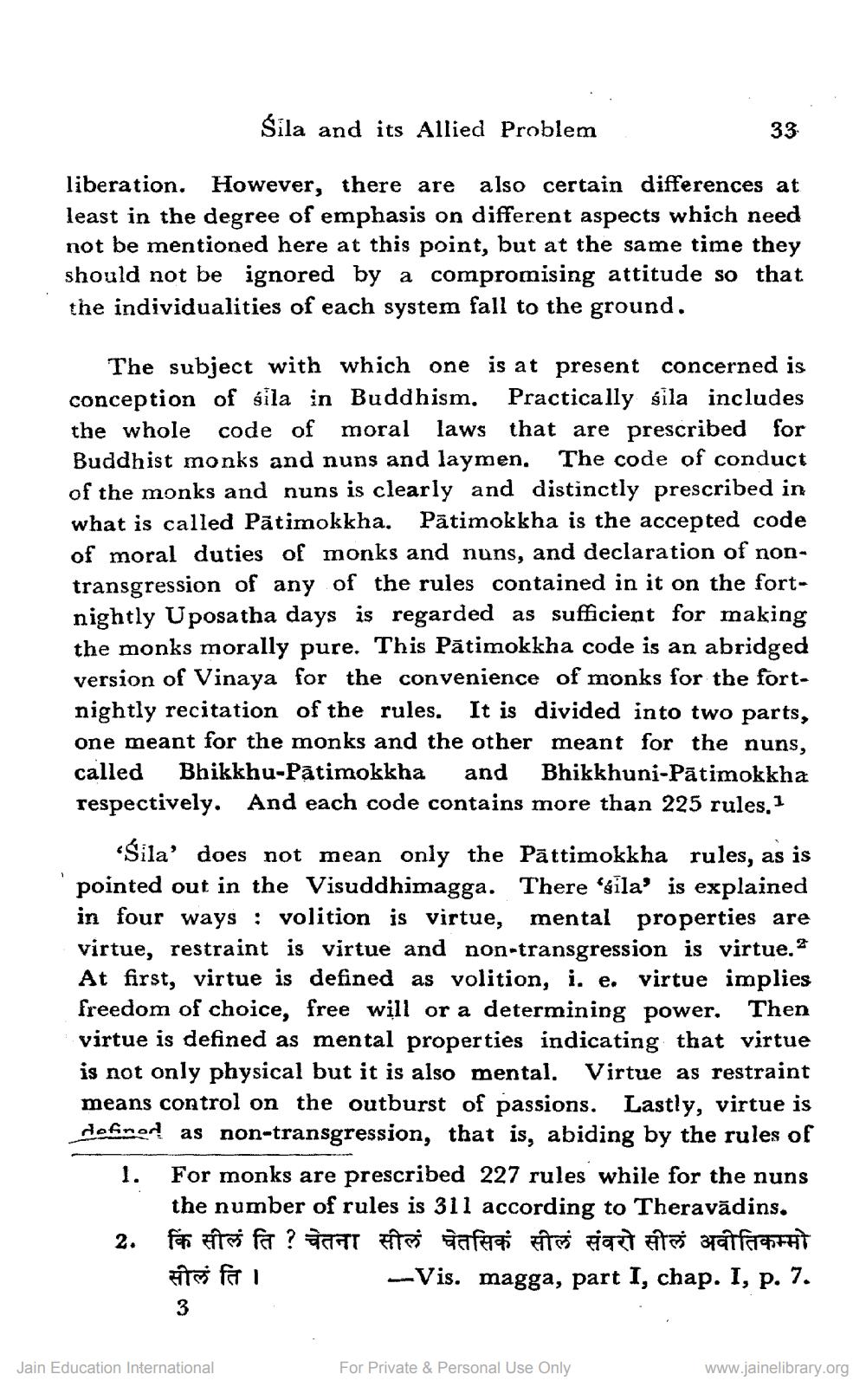________________
Bila and its Allied Problem
33
liberation. However, there are also certain differences at least in the degree of emphasis on different aspects which need not be mentioned here at this point, but at the same time they should not be ignored by a compromising attitude so that the individualities of each system fall to the ground.
The subject with which one is at present concerned is conception of sila in Buddhism. Practically sila includes the whole code of moral laws that are prescribed for Buddhist monks and nuns and laymen. The code of conduct of the monks and nuns is clearly and distinctly prescribed in what is called Pātimokkha. Pātimokkha is the accepted code of moral duties of monks and nuns, and declaration of nontransgression of any of the rules contained in it on the fortnightly Uposatha days is regarded as sufficient for making the monks morally pure. This Pātimokkha code is an abridged version of Vinaya for the convenience of monks for the fortnightly recitation of the rules. It is divided into two parts, one meant for the monks and the other meant for the nuns, called Bhikkhu-Pātimokkha and Bhikkhuni-Pātimokkha respectively. And each code contains more than 225 rules. I
'Sila' does not mean only the Pättimokkha rules, as is pointed out in the Visuddhimagga. There ‘sila' is explained in four ways : volition is virtue, mental properties are virtue, restraint is virtue and non-transgression is virtue. At first, virtue is defined as volition, i. e. virtue implies freedom of choice, free will or a determining power. Then virtue is defined as mental properties indicating that virtue is not only physical but it is also mental. Virtue as restraint means control on the outburst of passions. Lastly, virtue is defined as non-transgression, that is, abiding by the rules of 1. For monks are prescribed 227 rules while for the nuns
the number of rules is 311 according to Theravādins. 2. किं सीलं ति ? चेतना सीलं चेतसिकं सीलं संवरो सीलं अवीतिकम्मो to foi
--Vis. magga, part I, chap. I, p. 7.
Jain Education International
For Private & Personal Use Only
www.jainelibrary.org




